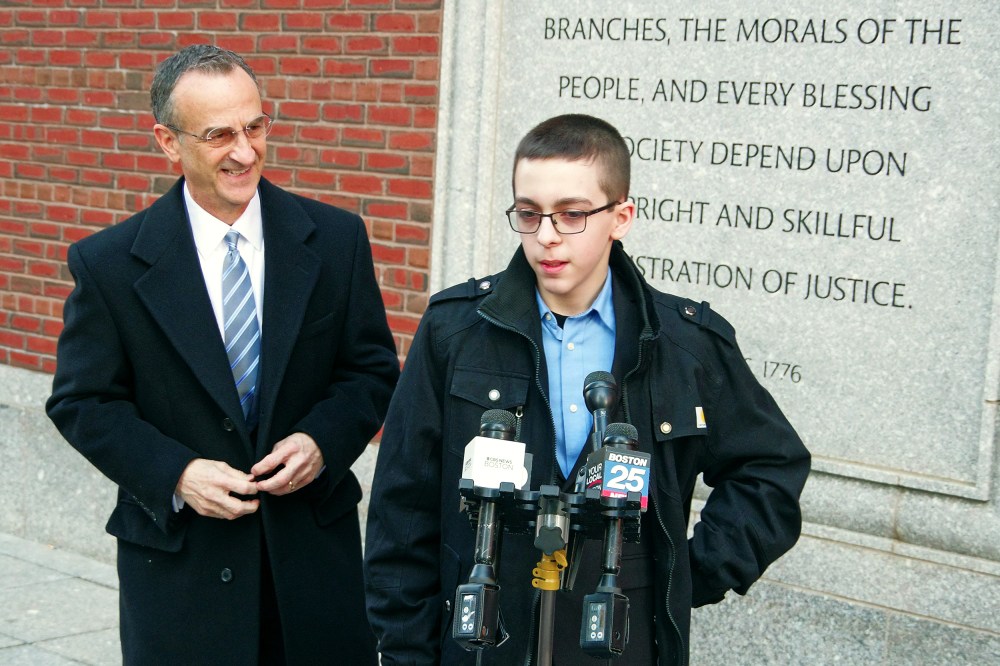The Supreme Court refused to hear an appeal over a middle schooler being barred from wearing a T-shirt to class that said, “There Are Only Two Genders.” Justices Clarence Thomas and Samuel Alito dissented, arguing that the court should have taken up the First Amendment dispute.
The denial came Tuesday on the court’s routine order list, a document that announces action in pending appeals, mostly consisting of the justices declining to take up cases for review. The court grants review in relatively few cases and it takes four justices to do so.
In the T-shirt case, called L.M. v. Middleborough, Thomas and Alito each wrote dissents. Both are notable, especially since both justices have (in different ways) previously ruled against students in First Amendment cases.
In Thomas’ brief dissent, he reminded readers that he thinks the landmark precedent upholding student speech rights was wrongly decided. That precedent is Tinker v. Des Moines Independent Community School District, which, he noted, said in 1969 that public schools can’t restrict student speech unless it “materially disrupts classwork or involves substantial disorder or invasion of the rights of others.”
Thomas cited his prior concurring opinion from a 2007 case in which he wrote that the Tinker standard “is without basis in the Constitution”; he wrote in that concurring opinion, “In my view, the history of public education suggests that the First Amendment, as originally understood, does not protect student speech in public schools.”
So if Thomas doesn’t think kids have speech rights in school, why does he care about this one?
The formal reason he gave is that while he thinks Tinker is wrong, “unless and until this Court revisits it, Tinker is binding precedent that lower courts must faithfully apply.” He wrote that the student here didn’t create a material disruption by wearing the two-genders shirt or a later one that said, “There Are CENSORED Genders.”
Alito’s lengthier dissent said (in part) that the case presented “an issue of great importance for our Nation’s youth: whether public schools may suppress student speech either because it expresses a viewpoint that the school disfavors or because of vague concerns about the likely effect of the speech on the school atmosphere or on students who find the speech offensive.”














